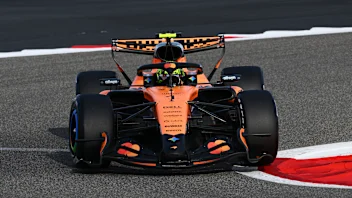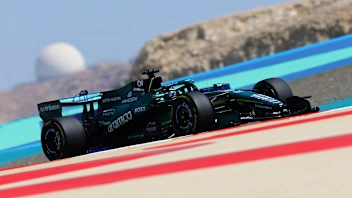Formula One racing has undergone a technical revolution for 2014 with the switch to fully integrated hybrid power units. In recognition of the importance of this new philosophy to both the sport and production road cars, Mercedes have rechristened their F1 W05 car the F1 W05 Hybrid.
"Mercedes-Benz has been at the forefront of automotive innovation since the invention of the first automobile by Gottlieb Daimler," said Toto Wolff, head of Mercedes-Benz Motorsport. "This pedigree includes over a century of motorsport involvement, which has provided a testing ground for some of the brand's most significant breakthroughs.
"What we are seeing in Formula One today is the next generation of innovations that will eventually find their way from the race track to the road. Mercedes-Benz is leading the way in promoting the positive new direction the sport has taken."
While the hybrid systems introduced for 2014 are altogether more far-reaching, the idea of the engine as a standalone source of propulsion in Formula One competition was consigned to history several years ago through the introduction of KERS hybrid power in 2009 and from 2011 through 2013, with the Mercedes-powered McLaren of Lewis Hamilton taking the first ever hybrid F1 victory at the 2009 Hungarian Grand Prix.
However, whereas the previous V8 engine format utilised a KERS hybrid system which was effectively 'bolted on' to a pre-existing engine configuration, the new 2014 power units have been designed from the outset with hybrid systems integral to their operation.
"Formula One is the pinnacle of automotive innovation. As such, it has a responsibility to push the boundaries of technology," added Wolff. "The new regulations not only encourage this innovation but also align the sport with the direction in which the automotive industry is heading. As a works manufacturer team, we are perfectly placed to reap the rewards of aligning our racing activities with the future technology path for series production.
“Formula One always has been about pure racing - and it still is today. At the same time, we're now back at the cutting edge of technology and pioneering new solutions. That's a huge positive step for the sport."
During the early development phases of KERS in 2007, a typical system weighed in at over 100 kg and worked at a thermal efficiency level of 39 percent. By the end of the 2012 season the units weighed just 24 kg and were capable of 80 percent thermal efficiency levels.
In other words, Formula One development enabled a 12-fold increase in power density from KERS systems, the impact of which has already filtered down into hybrid systems used by the everyday motorist.
Next Up
Related Articles
 Russell’s best meme moments as he turns 28
Russell’s best meme moments as he turns 28 BettingMcLaren make solid start in first pre-season test
BettingMcLaren make solid start in first pre-season test Aston Martin make changes to trackside engineering structure
Aston Martin make changes to trackside engineering structure Watch as F1 TV break down Day 1 of second Bahrain test
Watch as F1 TV break down Day 1 of second Bahrain test/Winners%20&%20Losers%20DISPLAY%20template.webp) Winners & LosersWinners and Losers from the first pre-season test
Winners & LosersWinners and Losers from the first pre-season test Hamilton feeling ‘in the best place I’ve been for a long time’
Hamilton feeling ‘in the best place I’ve been for a long time’